SCARCITY, WORK, AND CHOICE
1/17
There's no tags or description
Looks like no tags are added yet.
Name | Mastery | Learn | Test | Matching | Spaced |
|---|
No study sessions yet.
18 Terms
What is labour
Work and an input in the production of goods and services
What does technology do to the productivity of labour?
Raise the productivity of labour
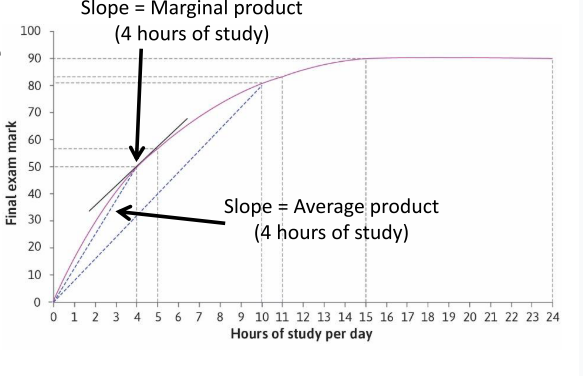
What do production functions show?
How inputs translate into outputs whilst holding other factors constant
What can you calculate from a production functions ?
-Marginal Product
-Average Product
What is the marginal product?
Change in output per unit of input which is evaluated at a given point holding other inputs constant
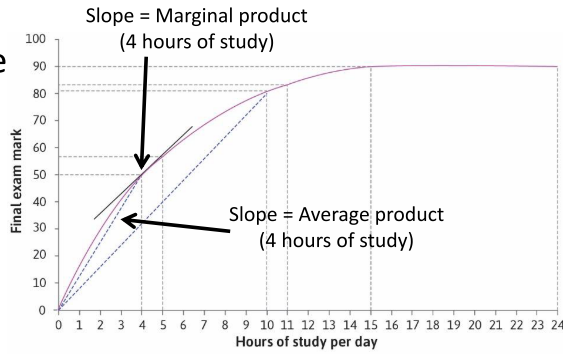
What is the average product?
Average output per unit of input
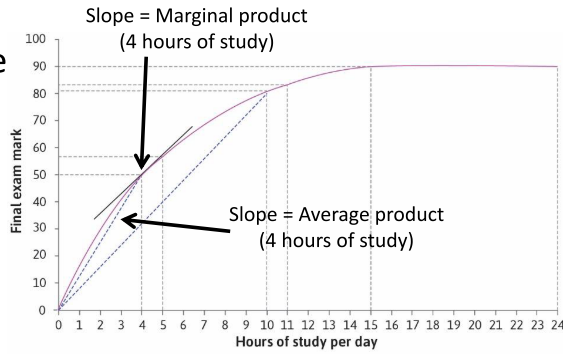
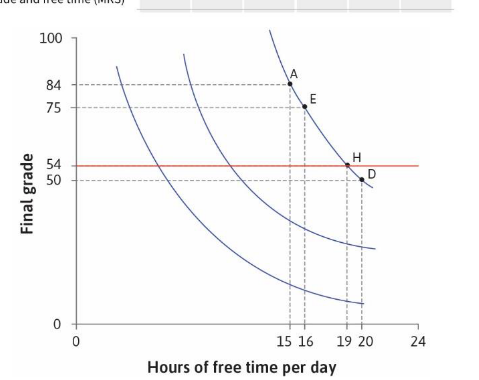
What does an indifference curve show?
Shows all combinations that give the same utility so represents preferences
What is the marginal rate of substitution?
Slope of the indifference curve, and represents the trade-offs that an individual faces
What is the opportunity cost of an action?
Net benefit of the next best alternative action
How do we compare actions?
Based on economic cost which = monetary cost e.g. transport + subjective costs effort of work
What does the feasible frontier show?
Maximum output that can be achieved with a given amount of input
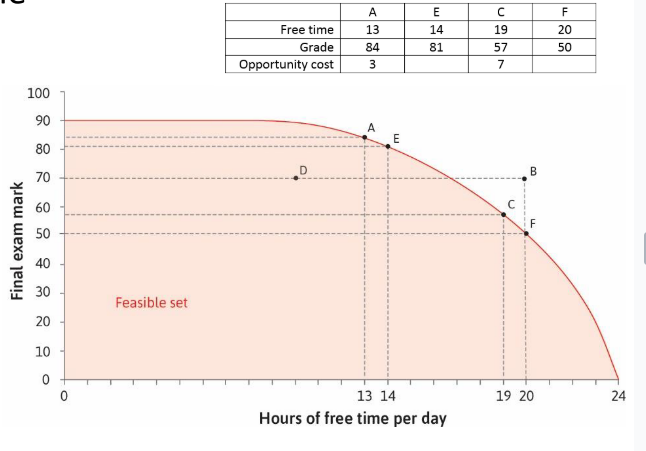
What is the Marginal rate of transformation(MRT)
Slope of the feasible frontier and represents the trade-offs that an individual faces
What is the Utility-maximising choice
Where the amount of one good the individual is willing to trade off for the other good (MRS) equals the actual trade-off between the two goods (MRT)
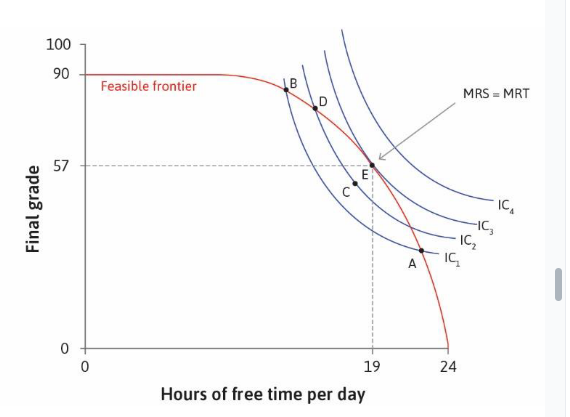
Utility Maximising choice formula
MRS=MRT
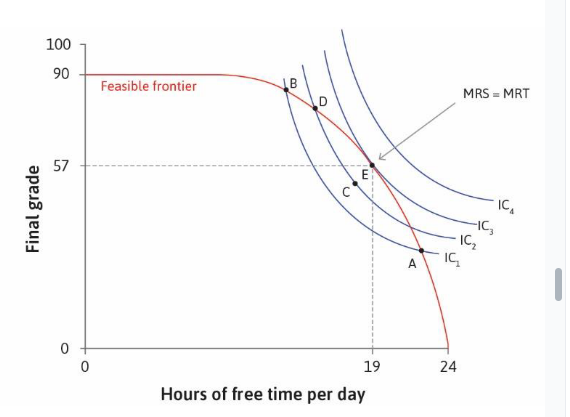
What can differences in free time be explained by?
Preferences that differ across countries like Differences in culture(norms), politics(legal limit on hours) and social preferences
Why isn’t indifference curve a good model?
-Not realistic: People don’t actually do MRS/MRT calculations.
-Most people cannot choose their working hours
Why is indifference curve a good model?
-Over time, people learn what combination of working hours and free time suits them best.
-Working hours can change due to culture and politics (indirect choice); people can choose which jobs to apply for.
-Helps us understand real-world phenomena: preferences and income/substitution effects can explain differences in working hours across countries and over time.
Can Feasible frontiers change?
Yes